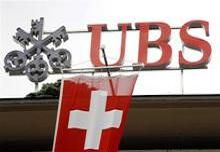The extension is meant to protect the firm’s top-ranked Australian franchise, although it may infuriate other parts of Switzerland’s biggest bank that are getting hit with lower pay and rile shareholder groups pressing for compensation reforms.
Bonuses often make up the majority of pay for senior investment bankers, with managing directors at most major Western banks usually in line to make around US$1m or more a year. Rivals luring away key bankers is a common industry practice and can cause damage to a franchise, as these individuals bring fee-paying clients with them.
Since the 2008 financial crisis, banks have come under pressure to revise compensation terms that drew the ire of the public and politicians. However, for UBS, losing key bankers in Australia over pay has been deemed potentially dangerous, as the business generates significant revenues in a key Asia-Pacific market – the envy of even rivals like Goldman Sachs, according to banking sources.
Sources say the latest UBS bonus-protection plan involves nearly a dozen managing director-level leaders, who hold the key to relationships with customers in Asia-Pacific’s sixth-largest economy. Clients include billionaire James Packer, Seven Network magnate Kerry Stokes, Commonwealth Bank of Australia, Telstra and fund manager AMP.
Bankers whose bonuses were ring-fenced included Guy Fowler, head of investment banking; David Di Pilla, co-head of the industrials group; Anthony Sweetman, head of corporate advisory; capital markets co-heads Barry Sharkey and Dane Fitzgibbon; and Simon Cox, head of equity capital markets, said the sources, who did not want to be identified as the bonus deal was not public.
The deal excludes Australia-based Matthew Grounds, once a key negotiator for the bonus arrangements, but who now has a global role as co-head of investment banking.
A UBS spokeswoman declined to comment on the story, saying the bank did not comment publicly on individual compensation.
Cox, Sweetman, Sharkey and Fitzgibbon said on the phone that they would not comment on the deal. Fowler and Di Pilla could not be immediately reached on the phone and did not reply to emails seeking comment.
Origins in 2008
The bonus-protection deal began in 2008 when the bank rolled back pay across the globe, although UBS realised it would have a problem in Australia if key bankers left for more money at rivals in the tight-knit, fee-heavy local market.
Australia is particularly sensitive to poaching because it is a large, developed, local market that is hard to break into, unlike other parts of Asia that are growing fast.
Grounds, who headed the Australia team at that time, felt that keeping the Australia unit intact was crucial amid a post-crisis atmosphere of widescale talent poaching, sources with direct knowledge of the matter told Reuters in December. The 2008 protection deal expired at the end of last year.
The latest bonus deal was similar to the 2008 scheme, where UBS let the Australia unit allocated a certain percentage of its revenue stream to year-end pay, the sources said. Annual country revenues and bonus pools are normally kept separate.
“This is obviously a way of retaining key personnel, but it’s not a common practice in the industry,” said Mark Enticott, managing director at recruitment firm Ambition in Hong Kong..
UBS’s Australian investment banking division has more than 150 staff, compared with more than 7,600 in the bank’s entire Asia-Pacific operations. The division has proven to be a standout performer in the region, while UBS revenues elsewhere have shrunk.
UBS sits atop the Thomson Reuters/Freeman Consulting Co investment bank league table for Australia so far in 2012, with estimated fees of US$75m. It also topped the league table over the past two years, netting US$294.6m and US$221.5m, respectively, in estimated fees, according to the data.
So far in 2012, UBS is the leading dealmaker in Australia in a down-year for activity, with mandates including a US$3bn planned float of the Australian unit of Hong-Kong listed CLP Holdings, Packer’s US$2bn sale of media interests to Rupert Murdoch’s News Corp, and a Nathan Tinkler plan to take Whitehaven Coal private for more than US$5bn.
Globally, UBS slashed its 2011 bonus pool by 40% to Sfr2.57bn (US$2.6bn) and said total bonuses would fall by 60% in the investment bank after a US$2.3bn rogue trading scandal that triggered the CEO’s resignation last September.
Earlier this year, Swiss shareholder groups Ethos and Actares urged UBS shareholders to vote down what they saw as excessive pay packages at the bank, drawing support from far larger numbers than common in Switzerland.
